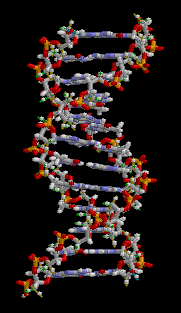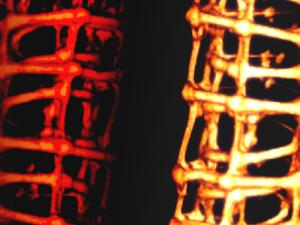Science researchers at Harvard University have discovered a gene found in the most devastating forms of cancer that controls embryonic stem cell self-renewal. The gene, SALL4, enables stem cells to keep dividing rather than grow into mature cells. The gene is re-expressed in almost all cases of acute myeloid leukemia and between 10 to 30 percent of lung, ovarian, gastric, liver, breast and endometrial cancer. Researchers say they can make a strong case that the gene plays a part in tumor formation. The breakthrough marks the beginning of a search for a drug that can block the gene’s activity.
Tags: 2014, Harvard University, 2013, Northeast, Massachusetts, Boston, BioResearch Product Faire Event, Cambridge, MA, Harvard
It is implicit that marketing life science solutions at a high quality life science marketing vendor show in Boston will result in excellent biotech sales leads, especially when one takes into account The Boston Globe’s recent report on the biotech industry boom in Boston. At least nine life science companies in Massachusetts could go public this year, making the boom one of the biggest since 2007.
Tags: 2014, Harvard University, 2013, Northeast, Massachusetts, Boston, BioResearch Product Faire Event, MA, Harvard, biotech sales leads, life science solutions, life science marketing vendor show
The Massachusetts Life Sciences Center recently announced that it will be giving $9 million in grants to Harvard Medical School and Boston Children’s Hospital to update research labs. Harvard Medical School will be receiving $5 million of the money and plans to use the research funding to create a Laboratory of Systems Pharmacology, which will be multidisciplinary in nature and will help to supply better information on clinical trials while drugs are in the process of development. Boston Children's Hospital will use the $4 million it receives from the state to establish the Children’s Center for Cell Therapy, which will include renovating labs to create specialized stem cell culturing facilities.
Tags: 2014, Harvard University, 2013, Northeast, Life Science Funding, Massachusetts, Boston, BioResearch Product Faire Event, Research Funding, MA, Harvard, Harvard Medical School, life science marketing events, lab sales leads
The National Eye Institute, an NIH agency dedicated to vision research, recently announced the winners of their Challenge to Identify Audacious Goals in Vision Research and Blindness Rehabilitation, or the Audacious Goals Challenge for short. The competition was open to professionals and members of the public and called upon them to think big and bold about vision research goals for the next decades. The prize money was nominal ($3,000) but included an invitation and travel money to attend and present their ideas at the NEI Audacious Goals Development Meeting in Maryland later this month. The real prize, of course, was the opportunity to help set research and funding goals for the next 10-12 years. Of the 500 or so proposals submitted, 10 visionaries were selected as winners.
Tags: University of Michigan, 2014, CA, Harvard University, Midwest, 2013, Northeast, university of utah, Washington University, Missouri, WashU, UUtah, St. Louis Bioresearch Product Faire Event, Oregon Health and Science University, Northwest, crowdsourcing, Vision Sciences Research, National Eye Institute (NEI), Blindness Rehabilitation, Southwest, University of Alabama, Southern, UT, Ann Arbor, Boston, BioResearch Product Faire Event, Funding, MI, MA, NIH, Harvard, OR, Salt Lake City, Birmingham, AL, UCSB, Santa Barbara, OHSU, Portland, UMich, UC Santa Barbara, Rehabilitation
Longwood Medical Area is known as one of the most prestigious educational, medical and research areas in the United States. Located along Longwood Avenue in Boston, Massachusetts, Longwood Medical Area (LMA) is made up of teaching hospitals, medical facilities, and non-medical facilities; as well as some top educational institutes, such as Harvard Medical School.
Tags: 2014, Harvard University, 2013, Northeast, Longwood Medical Center, Boston, BioResearch Product Faire Event, Research, MA, Harvard, NIH funding
 By now we all know that DNA is an informational molecule encoding the genetic instructions used in the development and functioning of all known living organisms and many viruses (Wikipedia). But very recently, Harvard University bio engineers at the Wyss Institute have shown that deoxyribonucleic acid can also be used as a tool. Specifically, two teams have published eye-opening studies on using DNA creatively to:
By now we all know that DNA is an informational molecule encoding the genetic instructions used in the development and functioning of all known living organisms and many viruses (Wikipedia). But very recently, Harvard University bio engineers at the Wyss Institute have shown that deoxyribonucleic acid can also be used as a tool. Specifically, two teams have published eye-opening studies on using DNA creatively to:
Tags: Wyse Institute, synthetic biology, 2012, Massachusetts, bio research, Boston, BioResearch Product Faire Event, MA, Harvard, Harvard Medical School
At the Wyss Institute for Biologically Inspired Engineering at Harvard University, in the Longwood medical neighborhood in Boston, researchers have reached a biotech milestone with tremendous potential for future drug testing and development. Instead of resorting to animals for testing, they may soon be using a simulated organ that lives on a chip. It has mechanical and biological (cellular) parts, and yes, it breathes, thanks to a vacuum system that pumps air through. The bio-inspired micro-device has gone through several tests recently to assess its accuracy in mimicking the human lung when bacteria or potentially toxic drugs are introduced. Results: Positive. The lung-on-a-chip replicates responses found in animal models and observations of human lung function. Indeed, because the device uses human lung and blood vessel cells, it acts may act more like a lung in a human body than lab animals.
Tags: Northeast, Lab-on-a-chip Technology, 2012, Massachusetts, Cancer, biological, Boston, BioResearch Product Faire Event, MA, Harvard, innovative solutions, Drug Development, Harvard Medical School, bio medical research
We've heard about the Golden Fleece Awards (vilifying seemingly-obscure science research) and the Golden Goose Awards (lauding seemingly-obscure science research) more than a little often in this year of threatened federal science budget cuts, but that's more politics than anything else. It certainly isn't half as much fun as the infamous and much-laughed-with Ig Nobel Prizes, given out yearly in honor of improbable research so absurd-sounding we can't help but love it. At this year's awards ceremony, held last Thursday night at Harvard University, 10 unlikely science research projects received their due respect (and a few guffaws) at the hands of genuinely bemused genuine Nobel laureates.
Tags: CA, 2013, Northeast, Southwest, 2012, BioResearch Product Faire Front Line Event, Boston, BioResearch Product Faire Event, Event, MA, Harvard, science researchers, Harvard Medical School, UCSB, Santa Barbara, Happy scientist, UC Santa Barbara
 It's getting to the point where there's less and less relevant distinction to be made between life science and physical science research. It was clearer when one lab had petri dishes and the other had circuitboards, but what happens when you have both? That's the case in the Harvard University labs of chemist Charles Lieber and his medical school colleague Daniel Kohane, where the bio research team has successfully created living tissue embedded with tiny nanowires capable of running an electrical current so subtle that it does not harm the tissue cells. These 3D bioelectronic structures could potentially both relay complex information about what's going on inside the tissue and receive signals from an outside source such as instructions for repairs. Several news outlets are calling it cyborg tissue and envision its future use in implants, prosthetics, or even some kind of therapeutic microbot. More immediately it will most likely be used for drug testing in labs, as a precursor to animal or human trials.
It's getting to the point where there's less and less relevant distinction to be made between life science and physical science research. It was clearer when one lab had petri dishes and the other had circuitboards, but what happens when you have both? That's the case in the Harvard University labs of chemist Charles Lieber and his medical school colleague Daniel Kohane, where the bio research team has successfully created living tissue embedded with tiny nanowires capable of running an electrical current so subtle that it does not harm the tissue cells. These 3D bioelectronic structures could potentially both relay complex information about what's going on inside the tissue and receive signals from an outside source such as instructions for repairs. Several news outlets are calling it cyborg tissue and envision its future use in implants, prosthetics, or even some kind of therapeutic microbot. More immediately it will most likely be used for drug testing in labs, as a precursor to animal or human trials.
Tags: Northeast, MIT, cell biology, 2012, Biochemistry, Massachusetts, biorobotics, Cell Research, chemistry research, bioprinting, Boston, BioResearch Product Faire Event, MA, Harvard, Harvard Medical School
There's been a lot of promising news lately on the HIV/AIDS drug and treatment front, and more scientific solutions are being developed in labs every day. Bringing new vaccine and drug treatments to fruition has been challenging, though, as test animals such as mice do not have immune systems that are similar enough to ours to predict what would really happen in a human model. Now, at bio science research labs at the Ragon Institute in Boston, scientists have overcome that obstacle by engineering a mouse with what is essentially a human immune system. The Ragon study just published in Science Translational Medicine successfully demonstrated that these "humanized mice" do in fact respond like a human does when infected with HIV. This is a big step towards developing and testing new vaccines in the lab.
Tags: Harvard University, Northeast, AIDS Research, animal research, 2012, Immune System, Boston, BioResearch Product Faire Event, MA, Harvard, BRPF, scientist solutions

